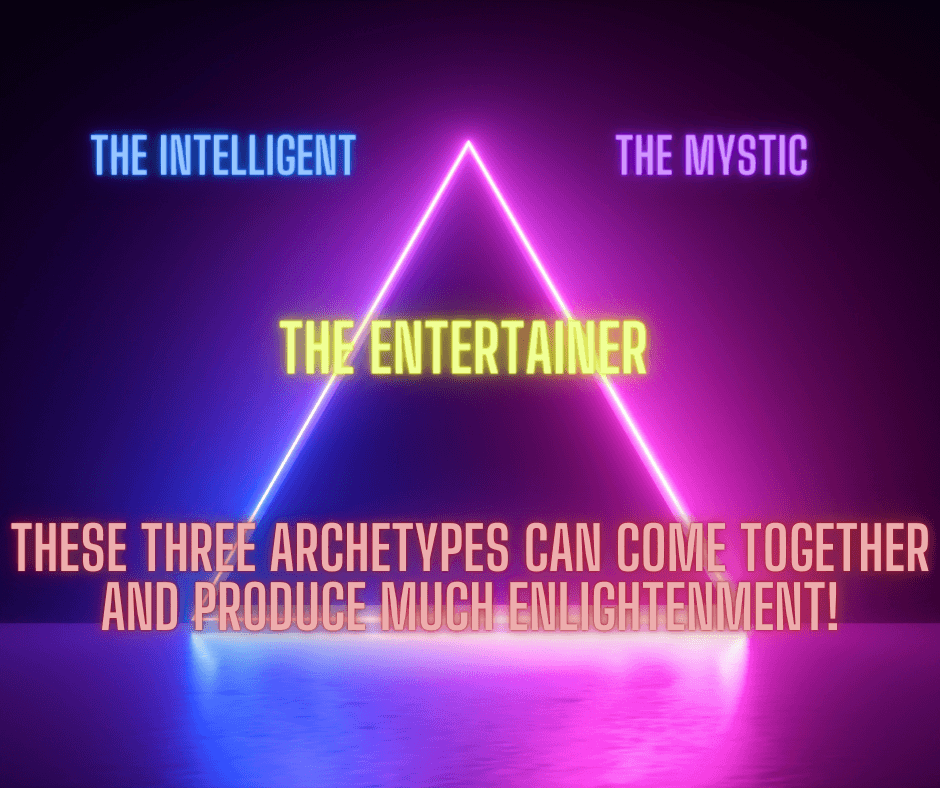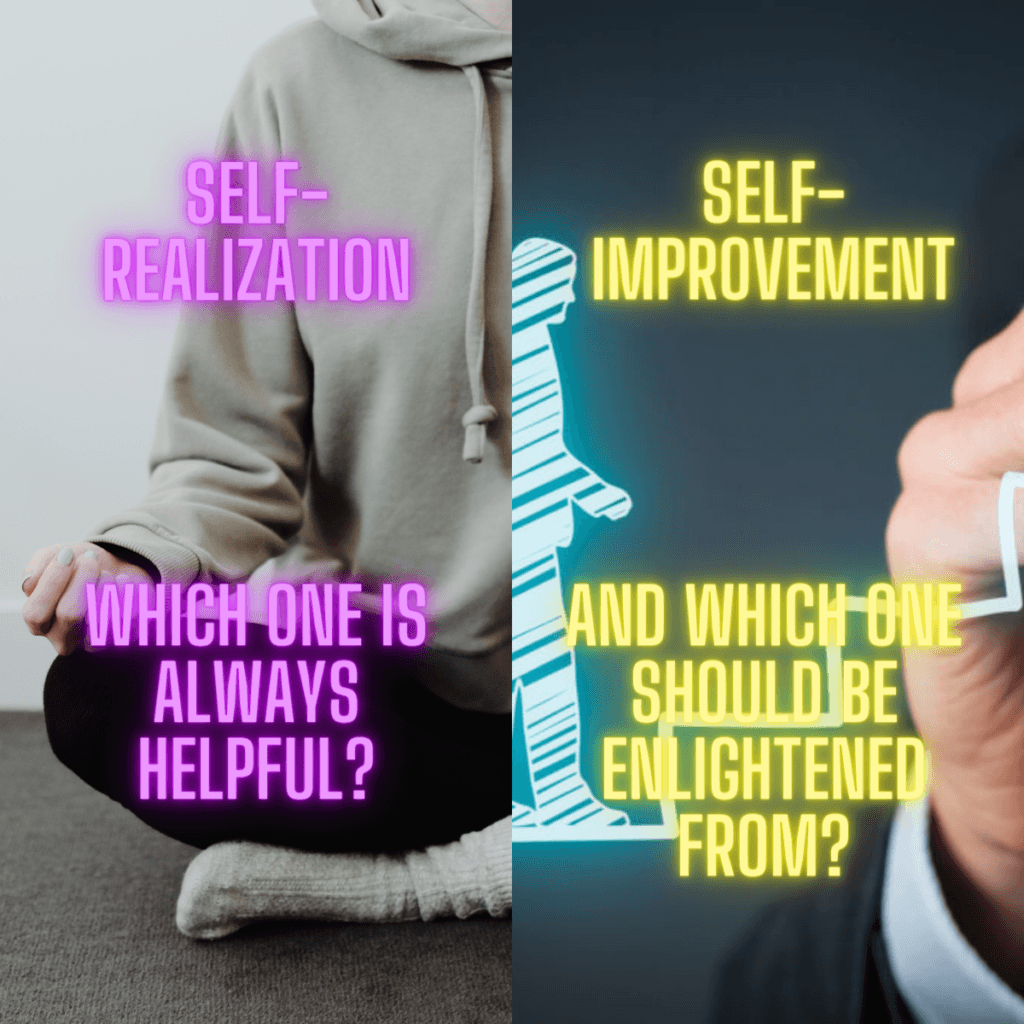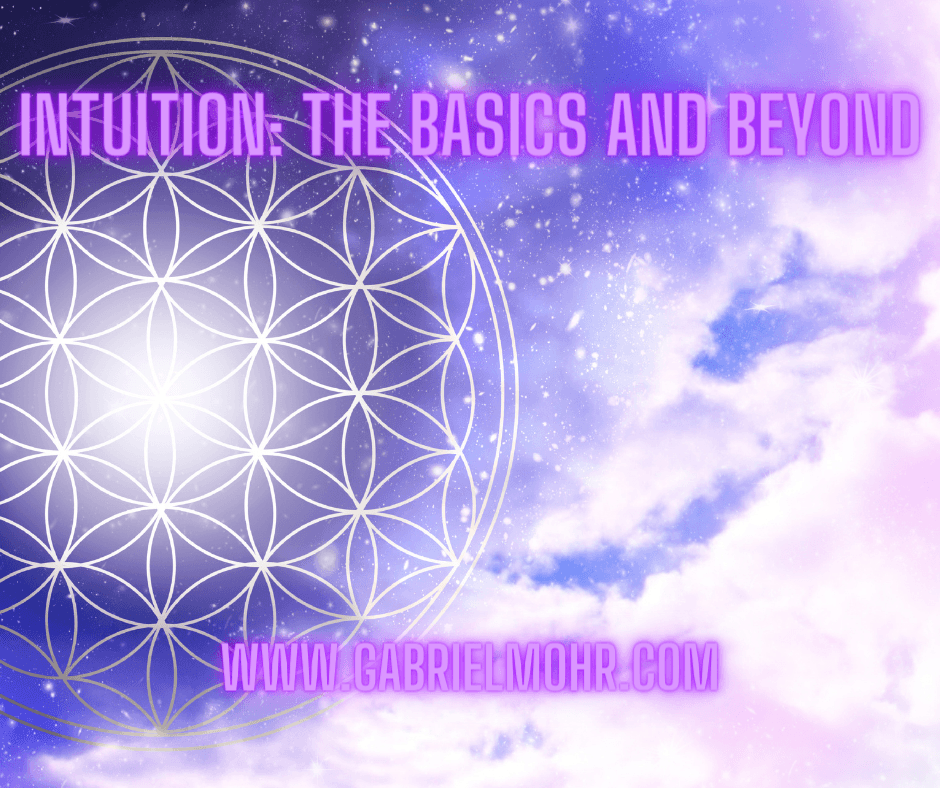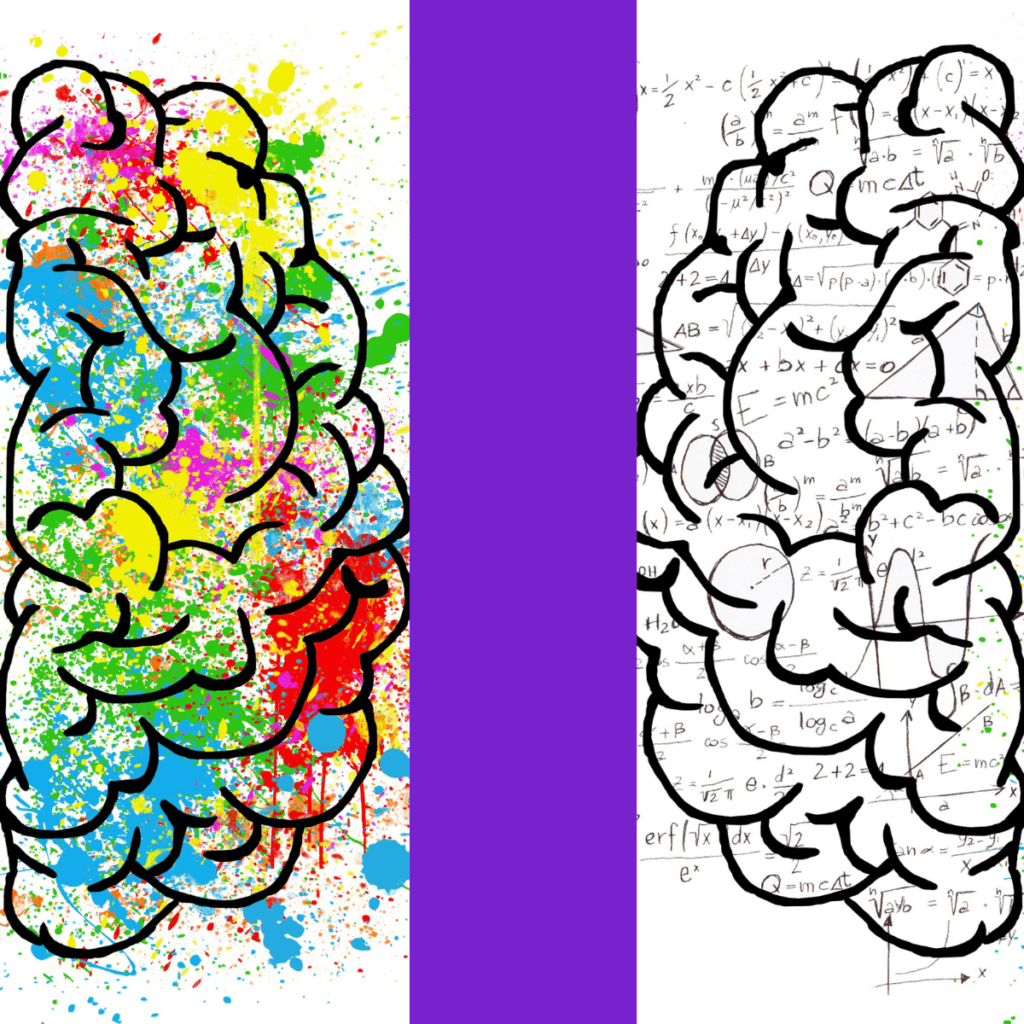
Quick Fact
-The mystics, the intelligent, and the entertainers can come together and produce an incredible amount of enlightenment and positive energy!
Intro
In my searching and with my experiences I’ve discovered that the mystic, the intelligent, and the entertainer can (and sometimes do) work together to produce a large amount of enlightenment. Why, how, and how can we use this knowledge to enhance our wellbeing even more than we already do? Read on to find out!
Overview
I began thinking about which archetypes are the most enlightening – is it the tyrant who makes your life harder, therefore makes you stronger? Is it the anxious woman who inadvertently shows you the value of your own confidence? Is it the grandmother/grandfather? Is it the father/mother? Is it the child?
Of course, each kind of person has their own unique qualities that help themselves and others, however, three stick out as being particularly enlightening and necessary for our survival and expansion:
The Intelligent, the Mystic, and the Entertainer.
How can we learn and apply life lessons without intelligence? How can we expand our consciousness without being able to open our third eye? How can we enjoy life if we aren’t able to be entertained?
These kinds of people can easily be seen as vessels of pleasure and enlightenment when compared to other kinds of people! Sit back and enjoy as I make my case for something that we may already know somewhere in the deep waters of our psyche.
Why These Three?
We wake up and do tasks. Some of us do the same (or roughly the same) tasks every day.
Many of us are acting out archetypes that encourage ourselves and others to keep doing tasks. This, in and of itself, is why anyone who doesn’t encourage the completion of tasks is closer to enlightenment than anyone who does encourage the completion of tasks.
Part of this is because many of us consider tasks to be “boring,” “dull,” “monotonous,” etc and part of it is because there is so much meaning to be found when we do not continue with our tasks but instead fall into thinking, meditation, or entertainment even without a negative opinion of them. Yes, everyone has their redeeming qualities, but those who break free of routine (and the obsession thereof) and encourage others to see past it as well deserve their own special place in our society.
The ones who can do this the best, as it seems to me, are the intelligent, the mystic, and the entertaining.
Perhaps these three are completing tasks while their qualities shine – it isn’t necessarily the case that they must stand still and do nothing, but it’s the knowledge, consciousness, and positive feelings they give while doing such tasks. They can see past doing tasks for the sake of doing tasks (as well as the obsession and constant pushing to do such) and they can argue that doing/being other things provides far more meaning… And be correct!
This is why these three are so important – they tell us to stop and think, stop and meditate, or to have fun! All of these qualities are great, and they’re even better when they’re together whether it be three separate people or three archetypes within one being! You can have intelligence but if you aren’t conscious or enthusiastic, it won’t go very far. You may be conscious but if you cannot think about it and communicate the value of consciousness others won’t benefit from your sight. And of course, if you’re entertaining but unable to think or understand exactly what you’re doing… That may be the worst of them all ;).
And if you want to say, “but thinking and meditating are tasks” I understand your perspective. It seems most important to stop doing physical tasks first, participate in thinking and/or meditating second, then stop doing anything at all third. My perspective is that thinking and meditating aren’t tasks but are useful ways to experience enlightenment. I’m glad we understand each other :).
The Intelligent
In this scenario I define intelligence as the ability to properly:
-Observe
-Research
-Understand
-Create conclusions
-Communicate understanding
-Change one’s opinions and conclusions when new information is presented
-Adapt (if needed) when new information is presented
-Figure out and think along the lines of what is best for themselves and others
-Perform self-individualization and self-integration
If we simply had the mystic and the entertainer, we wouldn’t have anyone to observe these two and be able to make striking and stunning conclusions that make the rest say “I never thought of that.” If you combine that with proper communication and enthusiastic delivery and you have someone who is regenerative and meaningful, two qualities that enlighten and expand consciousness.
One of the proper paths of the intelligent is to, indeed, become the mystic. However, one quality I encourage you with developed minds to retain is the ability and willingness to communicate your metaphysical findings, which is something the naturally-born mystic may never do.
The Mystic
The Mystic is:
-Conscious of metaphysical happenings
-Meaningful in and of themselves
-In complete control of their mind and their emotions
-Often calm and serene
-Understanding
The mystic is the most important piece of the puzzle, especially if the qualities of the entertainer are present. If the mystic is not entertaining their valuable state of consciousness is probably only experienced by themselves and, therefore, the others do not advance as efficiently as they could with an entertaining delivery of metaphysical matters. Mystics almost never need to enhance their intelligence since they already have what intelligence has to offer, however, I encourage you mystics to communicate your states of consciousness and how others can open their third eye.
As a mystic, becoming a spiritual teacher and an entertainer at the same time is a quality path to go down, or even simply becoming an entertainer! Also, the more we can awaken the three archetypes within each of us the more enlightened we will be!
The Entertainer
The Entertainer is capable of:
-Enthusiasm and enthusiastic delivery
-Confidence
-Being engaging
-Being empathetic
-Making others laugh
If a teacher is not enthusiastic and humorous when they teach, they will bore their students. If a mystic is not entertaining and enthusiastic when they speak of their mystical qualities people will probably consider them strange or even crazy! Entertainment is the part of life people respond to the most, and it’s often the final step before someone else hears a conscious message (the mystic arrives at a stage, the intelligent observes the mystic and communicates about their state, the entertainer reaches out and enhances their communication by injecting it with an enthusiastic, engaging attitude).
If an entertainer has no intelligence and no mystical qualities about them their entertainment will only go so far. I encourage you, entertainers, to develop your intelligence first and your mystical qualities second so that you understand what you’re doing, change what you’re doing if necessary, and know how to do it!
When They’re Added Together
If a quality intelligent, mystic, and entertainer are together they participate in a triangle of knowledge, consciousness, healing, advancement, and laughter! Since an entertainer is in the midst of our fantasy scene the happenings of this group will probably reach other people through social media, thereby enhancing the lives of many who watch it in one or more ways!
For this reason, I argue that it’s very important to have conferences, talks, and interviews with the best in all three ways of life. These can be viewed in real life and through YouTube!
However, the best option is to develop these three qualities within each one of us. We can simultaneously be intelligent, mystic, and entertaining at the same time, and the sooner we realize this and begin to develop these parts of life within ourselves the more meaningful and conscious life we will live!
The Importance Of Each Being Skilled/Talented
I’ve talked about each kind of person developing the other two parts of being, however, it’s also important for an intelligent person to develop their intelligence, a mystic to become as aware as possible, and an entertainer to become as entertaining as possible. This should probably take priority over developing the qualities which are not as developed because being very good in one area of life will open up opportunities to advance into the other areas of life. Plus, it’s great for your ego!
The Potential of Enlightenment and Healing This Way
The potential is limitless! It seems like almost everyone who is none of these three archetypes responds to at least one of these, and responding to at least one of these (hopefully highly-developed) archetypes while possessing none will, at least, give them the potential to enlighten!
If we see and become the best of these three kinds of people we will reach our full potential of enlightenment and healing. Of course, the potential is limitless, and we will reach it at the same time ;).
Conclusion
Thank you for reading! I encourage you to stop reading and do nothing for a little while, then continue reading ;).


